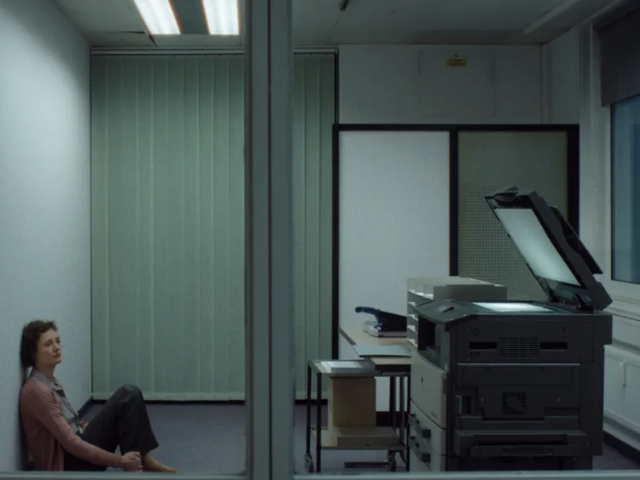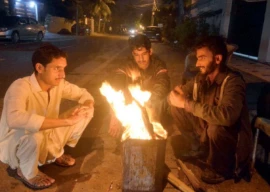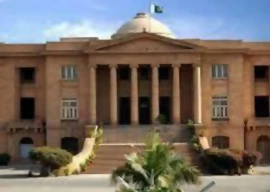
Prepared with a strong tinge of election-year populism, Sindh Minister for Finance Murad Ali Shah presented provincial budget estimates for 2012-13 on Monday with the total outlay of Rs577.98 billion.
In a marked departure from the pragmatic fiscal approach adopted by the PPP-led central government in the federal budget presented on June 1, the proposed Sindh budget is — in the words of the provincial finance minister — in line with the PPP’s founding leader’s slogan of “roti, kapra and makaan.”
No wonder, then, that despite the expected increase of 18% in revenues, the budget deficit in 2012-13 is still going to be Rs7.16 billion, or 1.24% of the total budgetary outlay. The increase in the outlay for 2012-13 from the current fiscal year is 26.32%, as it stood at Rs457.54 billion in the outgoing fiscal year.
Addressing the provincial assembly, Shah attributed the likely deficit to the “massive jump” in the development spending, which is expected to increase from Rs155.86 billion in 2011-12 to Rs231 billion in 2012-13, a hike of 48.2%.
Receipts of the province are estimated to be Rs570.81 billion for 2012-13, up by 24.5% from the outgoing fiscal year’s Rs458.42. Federal receipts are projected to be Rs381.9 billion in 2012-13 as opposed to Rs323.18 billion in the current fiscal year, an increase of 18.1%.
About 20.3% of the proposed budget is reserved for education with the estimated allocation of Rs110.88 billion, up by massive 66.48% compared to the current fiscal year. The second largest chunk of the budget will go to the general public service with an estimated amount of Rs72.45 billion, up by 13.3% from the current year.
Interestingly, the finance minister during his speech did not compare figures from the outgoing fiscal year with the proposed allocations for 2012-13. Rather, to put statistics in context, he chose to compare figures from the outgoing fiscal year with those from 2007-08, the last budget presented by the preceding provincial government led by the PML-Q.
Shah said the education budget in 2012-13 was 164% higher than the amount reserved for education in 2007-08. Similarly, he claimed that the proposed development allocation for 2012-13 was 600% higher than the allocation made in 2007-08.
“The Sindh government spent Rs50 billion on relief and rehabilitation (in the aftermath of the floods) in the past two years. This amount would also be spent on development had natural calamities not hit the province,” Shah said.
He added that the present government spent Rs644.84 billion in development budget under its tenure, which was more than double the cumulative development spending of Rs310 billion from 1947 to 2007.
Out of the development expenditure of Rs231.7 billion, Rs181 billion will be generated from Sindh’s own resources while Rs35 billion will come from the Asian Development Bank-assisted Flood Emergency Reconstruction Project and other projects.
The province will also receive Rs14.51 billion in the form of federal grants.
Although Shah read from his speech document in English during most of the session, he would switch to Urdu the moment he wanted to make a point more emphatically.
For example, while he went through the parts of his speech praising the president and Sindh chief minister quickly in English, he opted to speak in Urdu while highlighting that Sindh became the first province to establish its own legal framework for the collection of General Sales Tax (GST) on services.
The Sindh Revenue Board (SRB) – the provincial body mandated to collect GST on services – is expected to achieve its target of Rs25 billion in the current fiscal year. Before the creation of the SRB, the Federal Board of Revenue (FBR) collected Rs18.3 billion in GST on services from Sindh in 2010-11.
With a share of 4.4% in the total budget outlay, the allocation for infrastructure is going to be down by 50.8% compared to the outgoing fiscal year with a proposed budget of Rs24 billion in 2012-13.
The allocation for agriculture, however, will see a marginal rise of 0.5% with a proposed funding of Rs55.96 billion in 2012-13.
Its share in the total budget outlay is going to be 10.2% in the upcoming fiscal.
Published In The Express Tribune, June 12th, 2012.
COMMENTS (1)
Comments are moderated and generally will be posted if they are on-topic and not abusive.
For more information, please see our Comments FAQ





1732697578-0/Untitled-design-(5)1732697578-0-270x192.webp)











all the above information could have been presented in a much more reader friendly way: Graphs & Charts